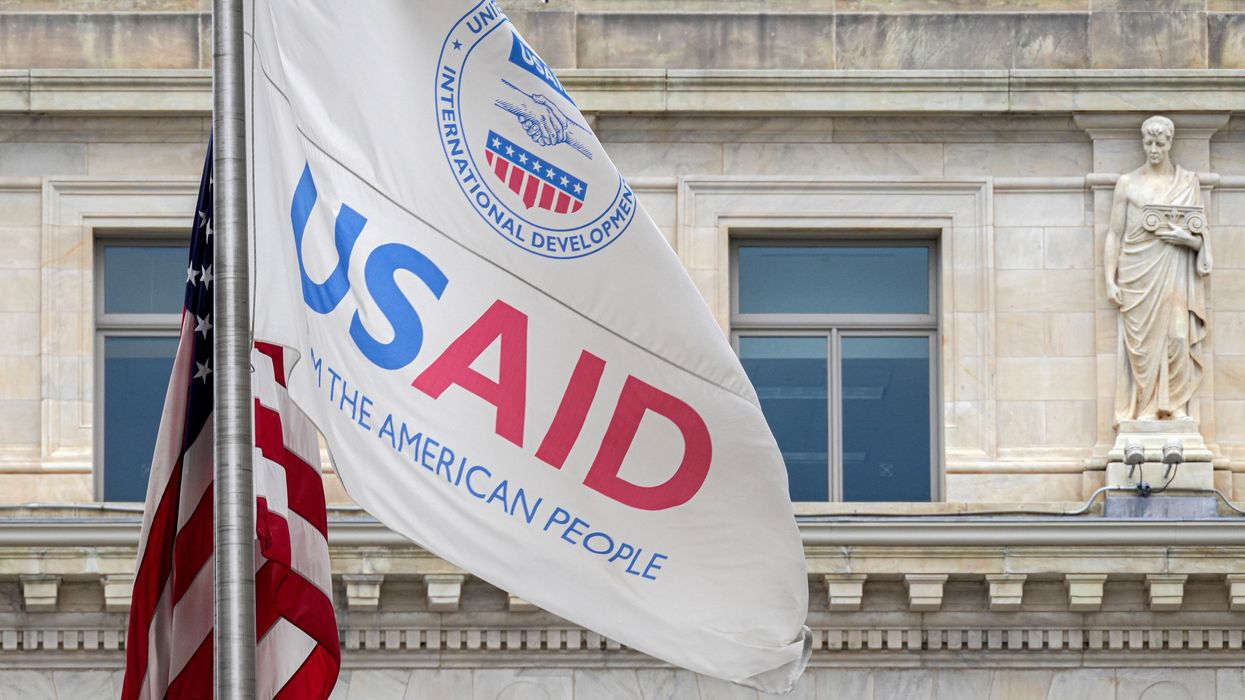In the comments section of his New York Times column titled “ Musk Said No One Has Died Since Aid Was Cut. That Isn’t True,” Nick Kristof wrote: “I think that President Trump and Elon Musk thought the U.S. Agency for International Development (USAID) would be an easy target and could be a practice run for raiding something harder, like Medicaid. In reporting this story, I tried to put human faces on the aid cuts and appeal to readers' consciences, but I wonder whether it's more effective to appeal to the public's sense of self interest? Which arguments do you think are most effective in reaching people and changing minds?”
As a citizen advocate who has spent more than 40 years working to improve USAID, waves of grief keep coming over me due to the reckless and shameful dismemberment of the agency. Attempts by Musk and Trump to shut down USAID amount to vandalizing America’s soul.
Here's why I say that demolishing USAID is like vandalizing America’s soul, why it is wrong to decimate an agency that Elon Musk calls “evil” and “a criminal organization” that “needs to die” and that President Trump said is run by “lunatic radicals”. Listen to the late-U.S. Senator Mark Hatfield (R-OR) who, in 1982, spoke to our deepest aspirations as individuals and as a nation. In an Oregonian op-ed Hatfield wrote, “We stand by as children starve by the millions because we lack the will to eliminate hunger. Yet, we have found the will to develop missiles capable of flying over the polar cap and landing within a few hundred feet of their target. This is not innovation; it is a profound distortion of humanity’s purpose on earth.”
USAID is not a perfect organization, but it is one key tool the U.S. has for correcting that distortion of humanity’s purpose on earth.
Here’s an example of USAID’s importance. In the mid-1980s, globally, 3.5 million children were dying each year from six vaccine-preventable diseases (listen up RFK Jr.!): diphtheria, whooping cough, tetanus, measles, polio, and tuberculosis. At the time, a dose of vaccine to prevent the greatest killer, measles, cost a mere six cents. By 2017, globally, an estimated 700,000 children died each year from these vaccine-preventable diseases—a reduction in child deaths of 80 percent.
USAID matters not only for what it does but for how it impacts other donor countries. In a New York Times interview in 2013, former UNICEF Deputy Executive Director Kul Chandra Gautam said that it was the U.S. leadership on child survival “….that led many other countries to come on board.” Will our abandonment of the world’s poorest children and their families lead other nations to follow our lead and result in an alarming rise in global child deaths?
Hearing about millions of lives saved can make our eyes glaze over and miss the impact on individuals. UNICEF’s State of the World’s Children 1986 Report concluded with the words of Maria Auxilia Paja, a mother from a rural area in South America. A trained health worker arrived in her village but only after two of Paja’s children had already died, one from a respiratory infection and the other from measles. Paja said:
“For the baby boy, I tried to get help, but as I was carrying him for help, he just died in my arms. My daughter was older. I had got used to playing with her, being with her. It’s difficult. . . . It’s sad to remember those times with my children. She was alright when she went to bed. By midnight she was sick. She died just as day broke. I am not alone. It’s happened to a lot of women.”
“Maria Auxilia Paja is indeed not alone,” the report concluded. “In the last 12 months, approximately 15 million mothers like her have been forced to watch their children die.”
Because of the work of USAID and others, 10 million of those 15 million child deaths are now prevented each year, a two-thirds reduction in global child deaths. But with five million children still dying each year from mostly preventable causes, now is not the time to retreat from the parts of the aid budget that work.
We should locate wasteful spending in all areas of government but you don’t do that by firing USAID’s Inspector General and putting Elon Musk’s army of 20-somethings in charge. The Congress should do its job; protect effective aid and remove any abuse. When the Senate approved a continuing resolution in early March to extend federal funding for the remainder of the fiscal year, they voted down, by a vote of 73-27, an amendment introduced by Sen. Rand Paul that would cut foreign assistance funding by $16 billion. Twenty-seven Republicans voted against Sen. Paul’s amendment to cut foreign aid. Maybe some in Congress are finding their conscience (and some backbone).
Andrew Natsios, a lifelong Republican who ran USAID under President George W. Bush, said that what Musk and Rubio are doing “is criminal”. I agree with Natsios and I think Hatfield would too. I look at what Musk, Trump and Rubio are doing and see a profound distortion of humanity’s purpose on earth.
Sam Daley-Harris is the author of “ Reclaiming Our Democracy: Every Citizen’s Guide to Transformational Advocacy ” (Rivertowns Books, 2025 paperback) and the founder of RESULTS and Civic Courage.




















Trump & Hegseth gave Mark Kelly a huge 2028 gift